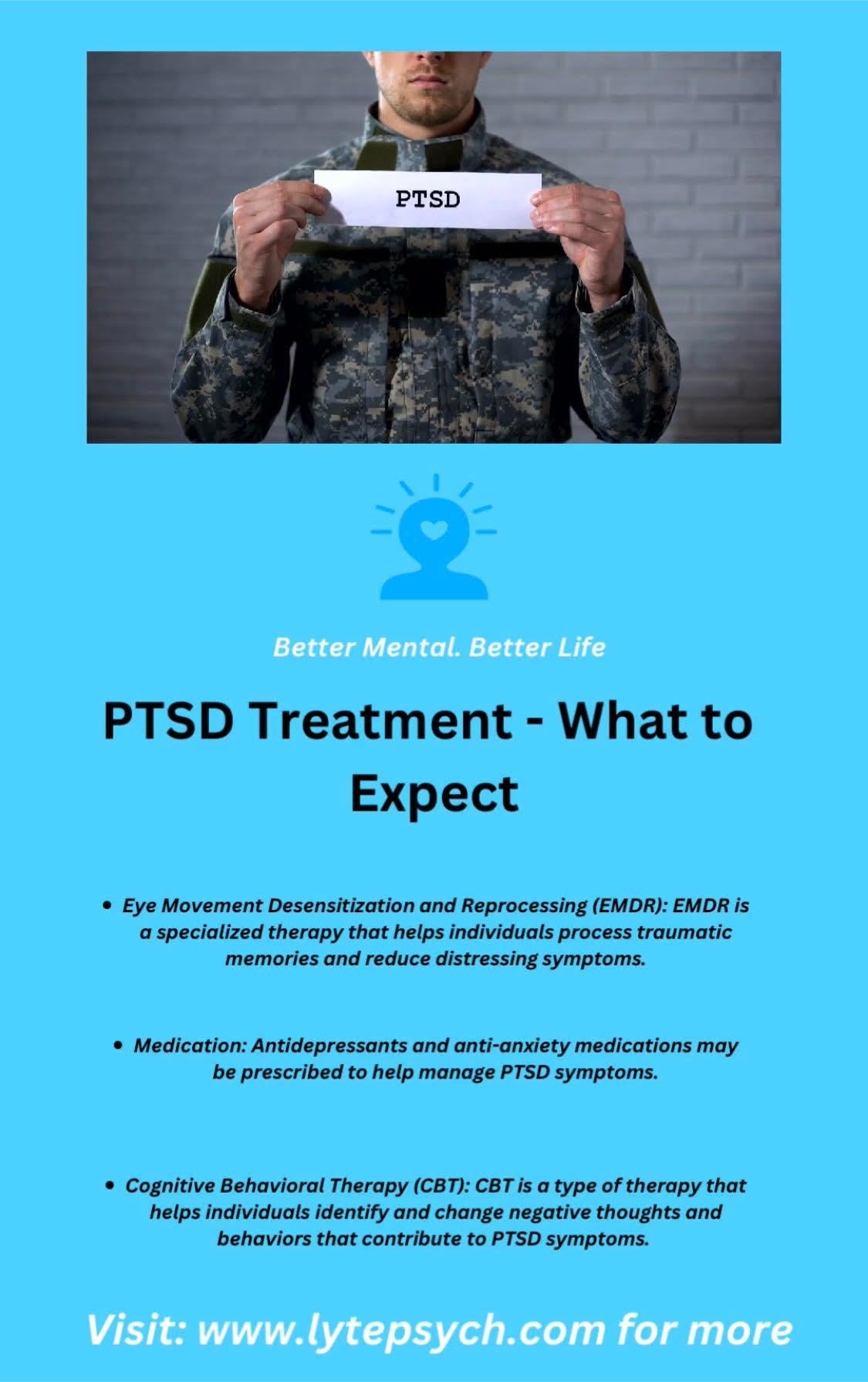Sun Apr 23 2023
PTSD Childhood Trauma: Understanding and Coping with Traumatic Events. Dallas, TX. Cedar Hill, TX. Lyte Psychiatry.

Childhood trauma can have lasting effects on mental health, leading to conditions like PTSD. Lyte Psychiatry in Dallas and Cedar Hill offers support and resources to help individuals cope with traumatic events and find healing.
Childhood trauma can have long-lasting effects on a person's mental health, leading to conditions like the infamous post-traumatic stress disorder (PTSD). PTSD is a mental health disorder that can creep up after experiencing or witnessing a traumatic event. And let's face it, trauma can come in many shapes and forms – from the terrifying to the downright bizarre. It is estimated that about 60% of men and 50% of women will experience at least one traumatic event in their lifetime. Sadly, childhood trauma is particularly impactful as it can interfere with a person's development and mess with their ability to form healthy relationships in adulthood. It's like the ultimate booby-trap of mental health!
What is PTSD?
Let's take a closer look at what PTSD is all about. It's a condition characterized by four main symptoms, which are re-experiencing, avoidance, hyperarousal, and negative changes in mood and cognition.
Re-experiencing
Re-experiencing can happen in a variety of ways, from intrusive memories to sudden flashbacks or nightmares – it's like a horror movie that never ends.
Avoidance
Avoidance is a bit like social distancing, except you're trying to avoid people, places, or situations that remind you of the traumatic event.
Hyperarousal
Hyperarousal can make you feel like you're constantly on edge, irritable, or easily startled – think of it as a constant adrenaline rush that you never asked for.
Negative changes in mood and cognition
Negative changes in mood and cognition can lead to feelings of hopelessness, guilt, or shame, and can make it hard to focus or remember things.
Causes of PTSD
Although the true clinical cause of PTSD is unknown, We do know that PTSD can be caused by a broad range of traumatic events, such as physical or sexual abuse to natural disasters, car accidents, combat, terrorism, witnessing a violent crime, or even serious injury or illness. However, the most serious of them all is childhood trauma, which can include but not limited to physical, sexual, or emotional abuse, neglect, or exposure to domestic violence. Most people describe it as a never-ending horror show that you can't turn off.
Symptoms of PTSD in Children
When it comes to PTSD in children in particular, the symptoms can look different from those in adults. Some common symptoms include bedwetting, acting out, nightmares or sleep disturbances, avoidance of school or social situations, and physical complaints like headaches or stomachaches. It's like a never-ending game of whack-a-mole, but with emotions.
Treatment Options for Coping with PTSD
Treatment for PTSD typically includes a combination approach psychotherapy (talk therapy) and medication management. Psychotherapy approach, such as the popular cognitive-behavioral therapy (CBT) or Dialectic behavioral therapy (DBT) can help individuals work through their previous or current traumatic experiences while develop coping skills to manage their symptoms. Medications like antidepressants or anti-anxiety drugs may also be used to help manage symptoms. And let's not forget about self-care strategies, like practicing relaxation techniques, engaging in regular exercise or physical activity, spending time with loved ones, participating in support groups, or avoiding alcohol or drugs, which can make things even worse.
Lyte Psychiatry: Best Adult Psychiatrist in Dallas, TX. Cedar Hill, TX.
If you're looking for the best adult psychiatrist in Dallas, TX, Cedar Hill, TX, look no further than Lyte Psychiatry. Their team of experienced psychiatrists, mental health nurse Practitioners and therapists offers a range of treatment options, including medication management, therapy, and life coaching. Plus, they even offer Telehealth services, so you can get the help you need from the comfort of your own home. It's like having a mental health spa day in your PJs.
Conclusion
In conclusion, childhood trauma is no joke – it can mess with your mental health in ways you never thought possible. But with the right treatment and support, you can manage your symptoms and start living your best life. Schedule an appointment today
If you're looking for mental health services, counseling services, or an experienced adult psychiatrist in the Dallas area, there are many options available. Top-rated psychiatrists can offer psychological evaluation, medication management, and trauma therapy for conditions like anxiety, depression, bipolar disorder, schizophrenia, addiction, personality disorders, and more. Various psychotherapy approaches, such as cognitive-behavioral therapy (CBT), dialectical behavior therapy (DBT), acceptance and commitment therapy (ACT), mindfulness-based therapy, and psychodynamic therapy can be used to treat a wide range of mental health conditions. Telepsychiatry and virtual therapy options are also becoming increasingly popular, offering online counseling and psychiatric services from the comfort of your own home.
FAQs
Q. Can PTSD be cured?
A. PTSD cannot be cured, but it can be effectively managed with the right treatment and support.
Q. What is the most effective treatment for PTSD?
A. Therapy is the most effective treatment for PTSD.
Q. Can children develop PTSD?
A. Yes, children can develop PTSD as a result of experiencing or witnessing a traumatic event.
Q. Are medications effective in treating PTSD?
A. Medications such as antidepressants and anti-anxiety medications can be effective in treating PTSD.
Q. Can PTSD symptoms go away on their own?
A. PTSD symptoms may lessen over time, but without treatment, they are unlikely to go away completely.
Keywords: PTSD, Childhood Trauma, Coping, Lyte Psychiatry, Dallas, TX Cedar Hill, TX.